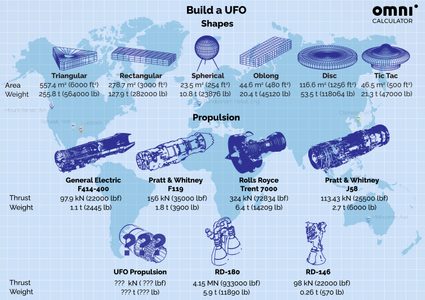Exoplanet Travel Planner Calculator
Planning a trip these days is easy. You look for flights to your destination, you buy the tickets, and most travel planning websites will offer advice on what to see there, how to prepare for the journey, what to pack… But what if your destination is not on this planet? Heck! What if your destination is not in our solar system? We asked ourselves the same question, and we created the Exoplanet Travel Planner; because you might not be able to travel to other worlds, but now you can plan for it!
It's been two years of James Webb, the best look at the universe yet!
We constantly hear about exoplanets in the news, and for good reason: we are in the golden age of exoplanet discovery and exploration. Kepler and, to a lesser extent, Hubble, helped us identify potential “new Earths”, and now the James Webb Space Telescope (JWST) is helping us separate the wheat from the chaff and find the best candidates for expanding our reach outside of the solar realm.

On December 25th 2023, JWST completed its first two years in orbit, bringing us some of the best and most insightful analyses of our universe. From baby galaxies to exoplanets bathed in extreme UV radiation, JWST is helping us understand more and more what happens outside of our cozy atmosphere and find more planets outside our solar system where life could already exist.
Now that we know how vast and strange our universe is, we cannot help but imagine what it would be like to visit all of those bizarre worlds and even dream of space expansion. While the technical and engineering side of things are literally rocket-science levels of difficulty, planning for the trip is much simpler, though equally important. But we shall not focus on whether we should, but rather on how we could do it.
Oh, the human species! Always thinking of ourselves as having all the knowledge possible and yet constantly being humbled by nature every time we stop and ask why. And there’s no better example of this than the field of astronomy.
A brief history of our story with the universe
The story of astronomy in the last two centuries is one in which humans desperately try to find ways in which we are special, and as soon as we look for evidence of that, the universe puts us in our very unimportant place: we’re just another rock moving through mostly empty space.
The shorter (and stylized) version of the story goes as follows:
-
We thought we were unique because we have the only sun => We realized all stars in the sky are just like our Sun.
-
We thought we were unique because our collection of stars (our galaxy) was the only one in the universe => We discovered there are billions of galaxies in the universe, and ours is not particularly big, small, interesting, or special in any way.
-
Well, our solar system is special cause our star has planets orbiting around => Psych! Having planets orbiting around a star is kind of the norm out there.
-
Maybe we are the only planet that’s capable of breeding life? => Think again, pal! Thanks to Kepler and JWST (amongst others), we know we’re just one of many and most likely not even the only one with “intelligent” life in it.

But even after that, we keep dreaming big, striving for the impossible and looking for new ways in which to be wrong, but also in which to expand our knowledge, evolve our technology, and, hopefully, improve our lives. For every setback, a new opportunity appears, and a new direction in which to dream and fantasize is created; and we cannot pass that opportunity.
At Omni Calculator, we are guilty of that, too. By getting ahead of the curve and creating our exoplanet travel planner, not only are we dreaming of new worlds to visit; but we are also getting ready for journeys that are so far out of our possibilities that not even AI-generated websites exist for them!
How to use the exoplanet travel planner
So, let us dream and fantasize about your next trip to another planet outside of our solar system. Using our Exoplanet Travel Planner is even easier than planning a short road trip; it only takes a few steps!
-
Select the destination of your trip. We’ve curated a short list based on some of the exoplanets and objects of interest that the JWST is looking closely at.
-
(Optional) Confirm that the distance is okay. If you selected a preset, you can move on. But if you want to visit another place in the universe, you can input the distance to your desired destination here.
-
Enter your age at the start of the trip. This will allow the travel planner to give you indications and recommendations based on the expected time you will spend on the planet based on the average human life expectancy.
-
PROFIT! All the information you need will be shown automatically, so it's time to try a different destination or share your next trip with everyone! Will they wanna go with you?
And if you're having trouble deciding on a destination, here are some interesting facts about the options we preselected for you:
-
LHS 475b: It was the first planet to be confirmed to exist by the JWST. It is a terrestrial planet with a size and weight similar to Earth.
-
51 Eridani b: It's a 20-million-year-old planet similar to Jupiter with a strong methane signature.
-
K2-18 b: It's classified as a "mini-Neptune". The JWST has found carbon dioxide and methane on this planet, which, together with temperatures that allow liquid water to exist, means it is suitable for life to develop on it!
-
TOI-715 b: A super-Earth exoplanet in a habitable zone that's one and a half times the size of Earth.
-
Kepler-186f: It's an Earth-sized planet that lives in the habitable zone of a red dwarf. A good candidate for life to exist!
-
Wasp - 39b: Also called Bocaprins, it's a "hot Jupiter" that contains a substantial amount of water and carbon dioxide in its atmosphere.
-
Galactic Center of the Milky Way: The rotational center of our galaxy, it is dominated by a supermassive black hole called Sagittarius A*.
-
NGC 68822 galaxy: Also called Barnard's Galaxy, it's the closest non-satellite galaxy to us. It can be seen in the constellation of Sagittarius.
This sci-fi tool we have built for you will tell you how much food and water you will need to survive your trip, and it will advise you how long the trip will take inside the spaceship and how much time will pass on Earth (Yes! They are different! More on that in the next section).
But no travel planner is complete without some recommendations to help you make the most of your holidays, so we implemented some recommendations for things to do during the trip — space journeys are multi-year endeavors — for your health and entertainment.
The challenges of space travel — from equations to logistics
If by this time you haven’t figured out the logistical nightmare that is traveling through space, let us drive the point home. We will not bother with designing, engineering, and manufacturing a spaceship that could last for such a long trip, hold so much food and water, and survive the extreme conditions of outer space; we’ll assume that’s possible. Let’s just focus on the crazy logistical and medical challenges and the weird behavior of time that you will get to experience firsthand.

Let’s say you’re going to LHS 475b, the closest of the preset options. This is a relatively short trip that will take just over 7 years to complete. Despite being one of the closest places you can visit in the universe, you will still need the equivalent of a standard shipping container full of food and more than half a million liters of water to survive! It definitely won’t be enough just with the hand luggage.
However, the most astounding thing about this trip is that despite taking you only 7 years to complete, everyone on Earth will be 42 years older by the time you arrive. That means if you were 30 when you left and just had a baby, your daughter will be older than you by the time you arrive at LHS 475b! This is due to the relativistic effects of speed on time.
When we travel close to the speed of light (which you need to do to reach other planets in a reasonable amount of time), time slows down compared to a resting frame of reference. The faster and longer you travel, the bigger the impact of this effect. Hint: Try and see what happens when you try to visit the center of our galaxy!
Now, the only thing left for you to do is to try out different destinations, pack up all supplies… and wait a few decades until this becomes viable, if it ever does. In all seriousness, you can use this tool to not only fantasize about interstellar travels but also to understand the practical challenges we will have to overcome and to help you comprehend some of the complicated physics that come into play when we venture outside our solar system.
Go, discover, enjoy, and share it with the world!